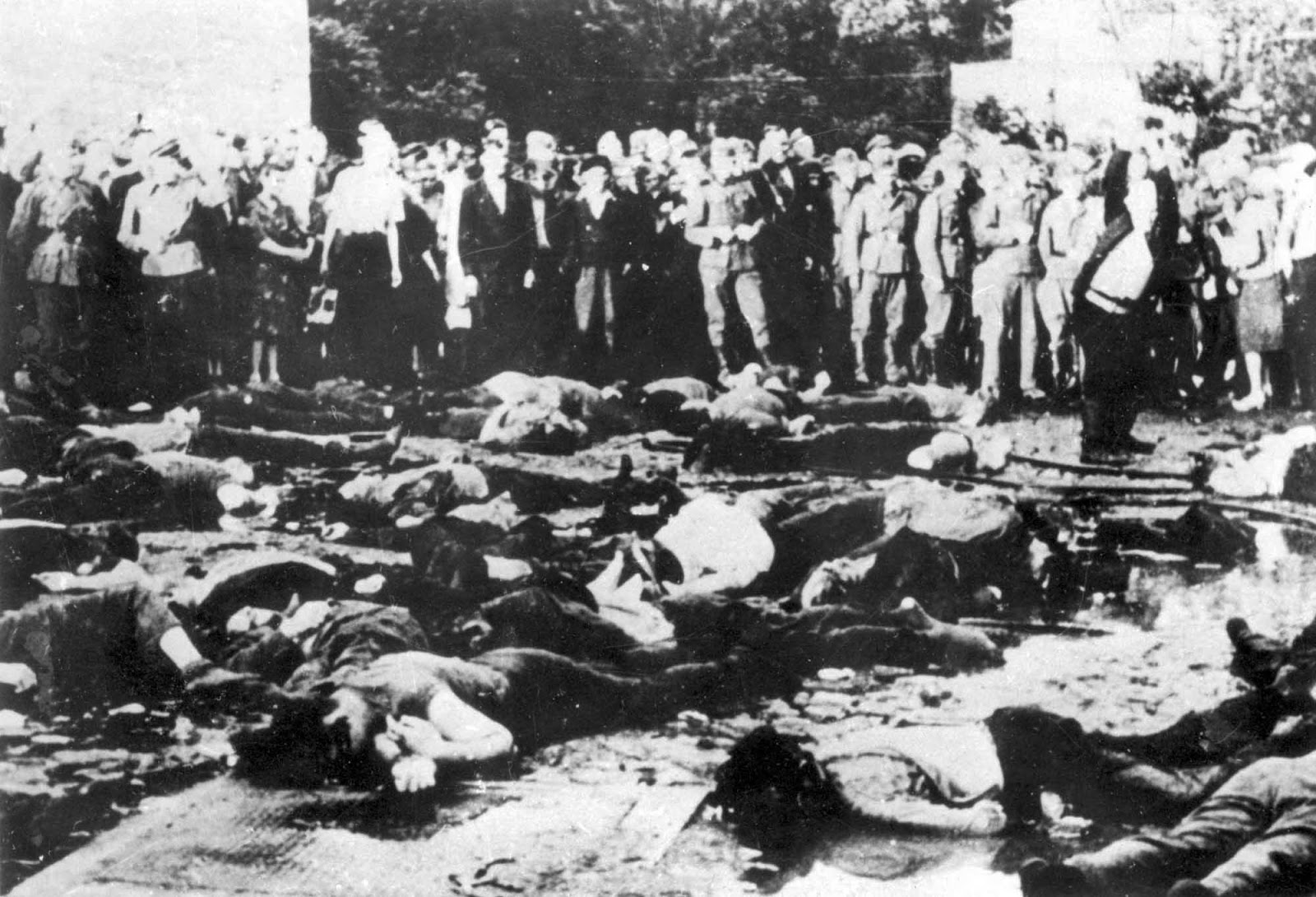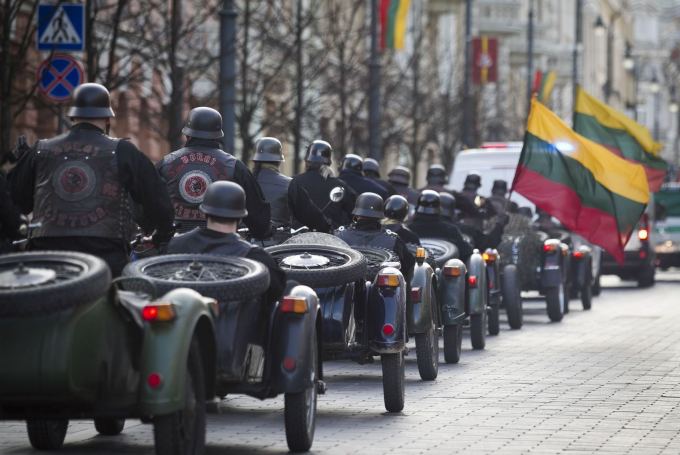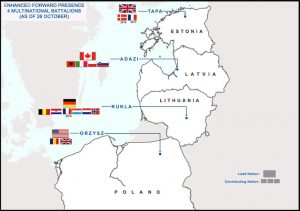
Views: 1134
 The Kaunas Garage Massacre of the Jews in June 1941
The Kaunas Garage Massacre of the Jews in June 1941
It was with great interest that I read the op-ed jointly penned by Foreign Minister Gabi Ashkenazi and his Lithuanian counterpart, Gabrielius Landsbergis, in last Friday’s Jerusalem Post. As could be expected, such initiatives are usually written to offer a rosy picture of the wonderful relations between two countries and the bright prospects for future cooperation. As a descendant of Lithuanian Jews, a frequent visitor to Lithuania ever since independence, and the co-author of a recent book on the rampant Holocaust distortion orchestrated by successive Lithuanian governments, I didn’t know whether to laugh or to cry.
On the one hand, it would not be difficult to create a false image of wonderful and flourishing relations between Israel and Lithuania, because the bilateral relations between the two countries have indeed developed exponentially during the past two decades, and especially since 2015, when Israel opened an embassy in Vilnius (Vilna). On the other hand, the underlying basis for the “honeymoon” described in the article by both foreign ministers is the proverbial “elephant in the room.” Israel’s absolute failure to categorically reject, and protest against, the false narrative of the Holocaust promoted by every Lithuanian government since the fall of the Soviet Union, is what has nurtured this ostensibly wonderful relationship.
The horrific fate of Lithuanian Jewry during the Holocaust is no secret. Nor is the highly significant role played in the murders by local collaborators from all strata of Lithuanian society. Of the approximately 220,000 Jews living under the Nazi occupation, 212,000 were murdered (96.4%, the highest percentage of victims among the large European Jewish communities). Some 90% of them were shot near their homes in Lithuania, in many cases by their neighbors.
If we add the more than 5,000 German, Austrian and French Jews murdered in Lithuania, and the approximately 20,000 Jews murdered in 1941-1942 by the 12th Lithuanian Auxiliary Police Battalion sent to Belarus in October 1941, the figure of victims is staggering for such a small country. What is virtually unknown, however, is that there were less than 1,000 Germans stationed in Lithuania during the Nazi occupation. Given the fact that all of these victims had to be murdered individually by shooting, and buried in some 250 mass graves, primarily in Lithuania (234 mass graves), but also in Belarus, one begins to grasp the incredibly critical role played by Lithuanian collaborators.
If Lithuania’s leaders had admitted the scope of local participation in Holocaust crimes, incorporated those unpleasant facts in its educational curricula, and make an honest effort to punish those perpetrators who had escaped prosecution, there would have been no reason for Israel to take “revenge” on the children and grandchildren of the perpetrators, or on the country as a whole. We could even bask in the friendship of these two erstwhile enemies.
CONTEMPORARY LITHUANIA, however, doesn’t deserve our friendship or cooperation. Instead of boldly and honestly confronting the tragedy of its Jewish population, Lithuania became a leader of the post-Communist Eastern European initiatives to distort the narrative of the Holocaust in four ways:
• It grossly minimized the crimes of local collaborators (none of whom have ever been punished in Lithuanian courts).
• It inflated the small number of Lithuanian Righteous.
• It has brazenly promoted the canard of equivalency between Nazi and Communist crimes, and vigorously lobbied for the observance of a memorial day for all victims of totalitarian crimes, which would make International Holocaust Remembrance Day superfluous.
• And it has glorified anti-Soviet fighters, even if they committed Holocaust crimes which, in theory, should have disqualified from being turned into national heroes.
So when an article lavishing praise on the ostensibly wonderful contemporary relations between Israel and Lithuania opens with the quote of the Gaon of Vilna, who no doubt would have been murdered had he lived in Vilna during the Holocaust, that “The goal of the redemption is the redemption of truth,” one truly doesn’t know whether to cynically laugh or cry many tears.
Originally published on 2021-01-14
About the author: Efraim Zuroff is the chief Nazi-hunter of the Simon Wiesenthal Center and director of the center’s Israel office and Eastern European affairs. His most recent book with Lithuanian author Ruta Vanagaite is Our People; Discovering Lithuania’s Hidden Holocaust (Rowman & Littlefield, 2020), published in Lithuanian, Polish, Russian, Hebrew, Swedish, and English.
Source: The Jerusalem Post
Origins of images: Facebook, Twitter, Wikimedia, Wikipedia, Flickr, Google, Imageinjection, Public Domain & Pinterest.
Read our Disclaimer/Legal Statement!
Donate to Support Us
We would like to ask you to consider a small donation to help our team keep working. We accept no advertising and rely only on you, our readers, to keep us digging the truth on history, global politics, and international relations.










